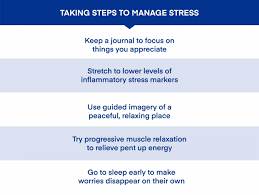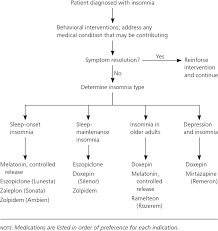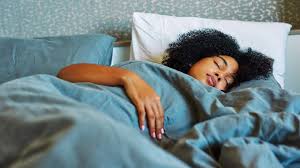Natural Remedies for Insomnia and Anxiety
Insomnia and anxiety are common issues that can significantly impact our quality of life. While there are various medications available to treat these conditions, many people prefer to explore natural remedies as a first step or in conjunction with traditional treatments. Here are some natural remedies that may help alleviate insomnia and anxiety:
Herbal Teas
Chamomile tea, valerian root tea, and passionflower tea are known for their calming properties and can help promote relaxation before bedtime. Enjoying a warm cup of herbal tea in the evening may help reduce anxiety and improve sleep quality.
Lavender Essential Oil
Lavender essential oil is widely used for its soothing aroma, which can promote relaxation and reduce stress levels. Diffusing lavender oil in your bedroom or adding a few drops to a warm bath before bedtime may help you unwind and improve your sleep.
Mindfulness Meditation
Practicing mindfulness meditation techniques, such as deep breathing exercises or progressive muscle relaxation, can be beneficial for managing both insomnia and anxiety. Taking time to focus on the present moment can help calm your mind and body, promoting better sleep and reducing feelings of anxiety.
Magnesium Supplements
Magnesium is an essential mineral that plays a key role in regulating neurotransmitters involved in sleep and mood regulation. Taking magnesium supplements or increasing your intake of magnesium-rich foods like leafy greens, nuts, seeds, and whole grains may help improve sleep quality and reduce anxiety symptoms.
Regular Exercise
Engaging in regular physical activity has been shown to have numerous benefits for both sleep quality and anxiety levels. Exercise helps release endorphins, which are natural mood lifters, and promotes better circulation, which can contribute to improved sleep patterns.
While these natural remedies can be effective for some individuals, it’s important to consult with a healthcare provider before making any significant changes to your routine, especially if you are currently taking medications or have underlying health conditions.
By incorporating these natural remedies into your daily routine along with healthy lifestyle habits like maintaining a consistent sleep schedule, limiting caffeine intake, and practicing stress-reducing activities, you may find relief from insomnia and anxiety symptoms in a gentle yet effective way.
7 Natural Remedies to Combat Insomnia and Anxiety
- 1. Try drinking a cup of chamomile tea before bedtime to help relax and promote sleep.
- 2. Practice deep breathing exercises or meditation to reduce anxiety and calm the mind.
- 3. Create a bedtime routine that includes activities like reading or listening to calming music to signal your body that it’s time to wind down.
- 4. Avoid caffeine and electronic devices at least an hour before bed as they can interfere with your sleep cycle.
- 5. Take a warm bath with lavender essential oil, known for its calming properties, to help you relax before bedtime.
- 6. Incorporate regular exercise into your daily routine as it can improve both sleep quality and reduce anxiety levels.
- 7. Consider trying relaxation techniques such as progressive muscle relaxation or guided imagery to help alleviate stress and promote better sleep.
1. Try drinking a cup of chamomile tea before bedtime to help relax and promote sleep.
One effective tip for managing insomnia and anxiety is to try drinking a cup of chamomile tea before bedtime. Chamomile tea is known for its calming properties and can help relax both the mind and body, promoting better sleep quality. The soothing aroma and gentle effects of chamomile can help reduce feelings of anxiety and tension, making it an ideal natural remedy to incorporate into your nightly routine for a peaceful and restful sleep.
2. Practice deep breathing exercises or meditation to reduce anxiety and calm the mind.
One effective tip for managing insomnia and anxiety is to practice deep breathing exercises or meditation. By incorporating these techniques into your daily routine, you can help reduce feelings of anxiety and promote a sense of calmness in the mind. Deep breathing exercises encourage relaxation and can help regulate your body’s stress response, while meditation allows you to focus on the present moment and quiet the racing thoughts that often accompany anxiety. Consistent practice of these techniques may lead to improved sleep quality and a greater sense of overall well-being.
3. Create a bedtime routine that includes activities like reading or listening to calming music to signal your body that it’s time to wind down.
Creating a bedtime routine that incorporates calming activities like reading a book or listening to soothing music can be a helpful natural remedy for managing insomnia and anxiety. Engaging in these relaxing activities signals to your body that it’s time to wind down and prepare for sleep. By establishing a consistent bedtime routine, you can train your body to associate these calming activities with bedtime, promoting relaxation and better sleep quality.
4. Avoid caffeine and electronic devices at least an hour before bed as they can interfere with your sleep cycle.
To improve your sleep quality and reduce anxiety levels, it is recommended to avoid consuming caffeine and using electronic devices at least an hour before bedtime. Caffeine can disrupt your sleep cycle by stimulating your nervous system, making it difficult to fall asleep or stay asleep. Similarly, the blue light emitted by electronic devices can interfere with the production of melatonin, a hormone that regulates sleep-wake cycles. By limiting exposure to caffeine and electronic devices before bed, you can create a more conducive environment for relaxation and better prepare your body for restful sleep.
5. Take a warm bath with lavender essential oil, known for its calming properties, to help you relax before bedtime.
Taking a warm bath with lavender essential oil, known for its calming properties, can be a soothing and effective way to relax before bedtime. The gentle aroma of lavender can help ease stress and anxiety, creating a peaceful environment that promotes better sleep quality. By incorporating this simple yet powerful natural remedy into your nightly routine, you can unwind both your body and mind, setting the stage for a restful night’s sleep.
6. Incorporate regular exercise into your daily routine as it can improve both sleep quality and reduce anxiety levels.
Incorporating regular exercise into your daily routine is a valuable tip for addressing insomnia and anxiety. Engaging in physical activity not only promotes better sleep quality by releasing endorphins and improving circulation but also helps reduce anxiety levels. By making exercise a consistent part of your day, you can experience the dual benefits of improved sleep patterns and decreased feelings of anxiety, ultimately contributing to your overall well-being.
7. Consider trying relaxation techniques such as progressive muscle relaxation or guided imagery to help alleviate stress and promote better sleep.
Consider trying relaxation techniques such as progressive muscle relaxation or guided imagery to help alleviate stress and promote better sleep. These techniques can be powerful tools in calming the mind and body, allowing you to release tension and unwind before bedtime. Progressive muscle relaxation involves tensing and then relaxing different muscle groups, promoting physical relaxation that can ease anxiety and prepare you for a restful night’s sleep. Guided imagery, on the other hand, uses visualization to create a peaceful mental environment that can help reduce stress levels and encourage a sense of tranquility conducive to falling asleep naturally. Incorporating these relaxation techniques into your nightly routine may offer a gentle yet effective way to address insomnia and anxiety symptoms.




